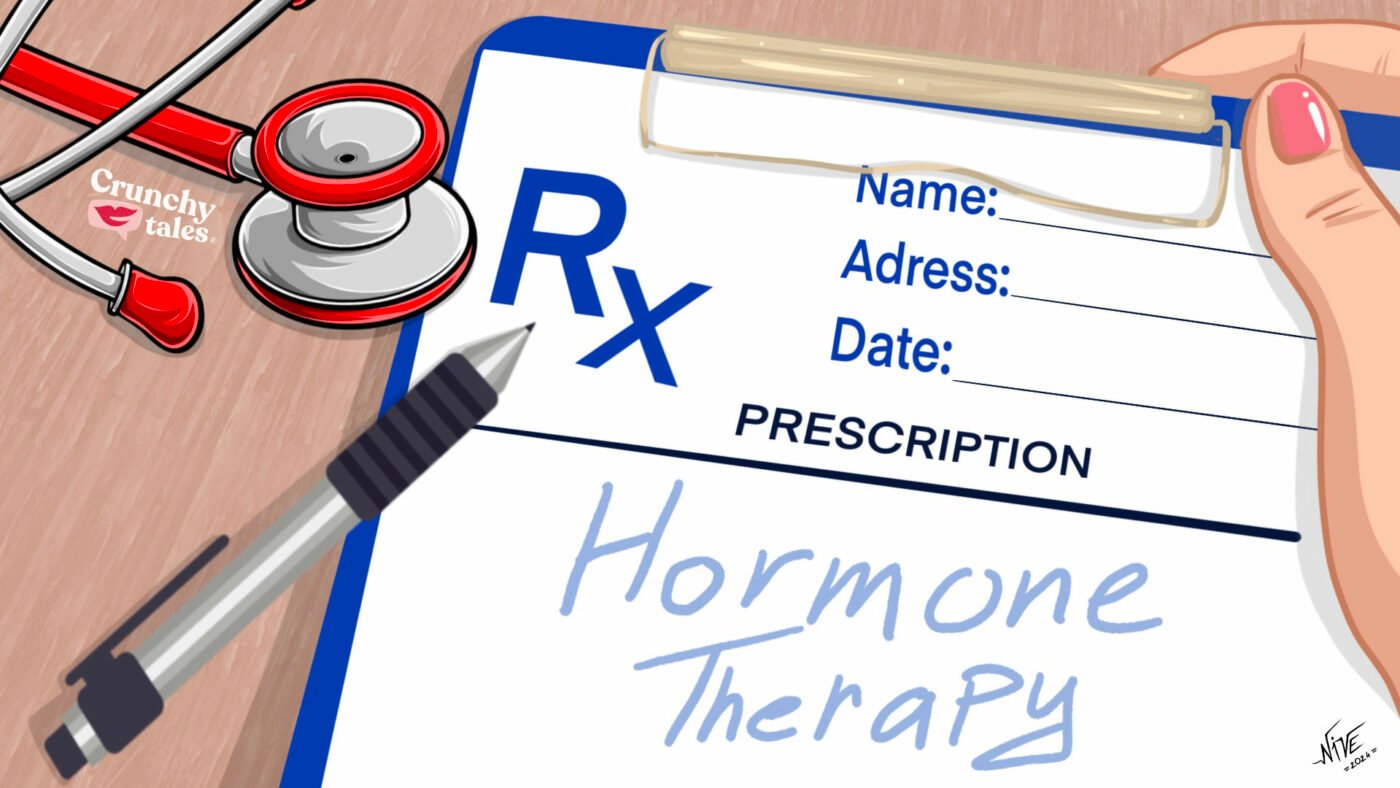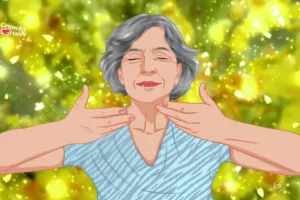6 Myths About HRT To Debunk Once And For All
In the realm of health and wellness, few topics spark as much debate and misinformation as Hormone Replacement Therapy (HRT). Whether whispered in the corridors of gyms or dissected in the comments sections of health forums, HRT is surrounded by a cloud of myths and misconceptions. These myths can be intimidating, deterring individuals from seeking treatment that could significantly improve their quality of life. But what if much of what you’ve heard about HRT is simply not true? We asked women’s health expert, author, co-founder of ‘Oneself Intimate Skin Care’ and the ‘Women’s Health & Wellness School’ on the Mproov app, Dr Sherry Ross, to bust these myths once and for all.
Hormone replacement therapy (HRT) to treat the disruptive symptoms of menopause has gotten a bad reputation over the years. What we have learned with further medical research is that HRT can be safely used to treat the close to 35 symptoms associated with menopause when prescribed to the right patient by a trained menopausal specialist after discussing the treatment choices available.
Here are the 6 most common myths associated with using HRT in menopause.
1.HRT will make me fat
It may seem as though HRT will make you gain weight since menopause typically occurs at 51 and this is when HRT is typically started. With that said, HRT doesn’t make you fat. Many women want to blame their weight gain on HRT but this is just not the case.
As we age, it is harder to lose weight. The hormonal upheaval of menopause tends to make gaining weight in the usual places—abdominal, thighs, hips and buttocks a common phenomenon.
Hormonal changes, ageing, genetics and lifestyle habits all make losing weight more challenging. Some believe you need to eat 200 to 300 calories less to maintain your current weight once you hit 50 years old, but actually, the focus for midlife women should be on eating a healthy well-balanced diet such as the Mediterranean diet, exercising regularly and limiting alcohol consumption.
2.HRT causes breast cancer
HRT does not cause breast cancer when prescribed at the right time and to the right patient. In 2002, the infamous Women’s Health Initiative (WHI) study followed 27,347 women aged 50 to 79 who took estrogen only, if they did not have a uterus, or estrogen/progesterone if they did. The WHI study was prematurely stopped three years ahead of schedule when researchers found a higher risk of breast cancer, blood clots, stroke and heart attack in women on hormone therapy. When this information was given to the public, I think all women who took HRT stopped taking it and many doctors stopped prescribing it.
More than 10 years later, further studies showed that when HRT was started within 10 years of menopause or < 60 years old, the risks were few and generally outweighed by the benefits. The risk of breast cancer was not increased in this group of people. However, when HRT was started > 60 years old, the risk of breast cancer was now slightly higher for those over 60 years and taking HRT for more than 10 years. Dose and duration should be individualized and personal risk factors such as “the risk of venous thromboembolism, stroke, ischemic heart disease and breast cancer” should guide the use of HRT.
Discussing your concerns and potential risk factors with your healthcare provider who treats menopausal people should become your priority.
3.Compounding HRT is safer than traditional HRT
Compounding bioidentical estrogen and progesterone hormones are not safer than traditional HRT. Compounded bioidentical HRT creams, drops and pellets- have not been tested in clinical trials in the same manner as traditional hormone replacement therapy and are not US Food and Drug Administration (FDA) approved. They are not regulated or monitored by the FDA.
Compounded bioidentical HRT is often marketed as being “more bioidentical, natural, safer and better” for your body, but no medical studies support these claims. Many traditional estrogen, progesterone and testosterone pills, patches, gels, creams and sprays are bioidentical and can be individualized to fit your needs as well. Compounded HRT is not more effective or safer than traditional HRT. It is always best to discuss the benefits and risks of compounding HRT with your trained menopausal specialist.
4.HRT can cause blood clots and strokes
There is not an increased risk of blood clots or strokes while taking HRT for low-risk patients and those without a history of blood clots or strokes. The confusion and misinformation came from the 2002 Women’s Health Initiative study which was stopped early with inaccurate conclusions about an increased risk of blood clots and strokes while using HRT.
Those who should not take HRT include those with a personal history of breast, ovarian or endometrial cancer, a strong family history of breast cancer, a history of blood clots, stroke, heart disease, liver disease or untreated high blood pressure.
If you do not have a history of blood clots or strokes you can safely use HRT under the supervision of a trained menopausal specialist.
5. HRT is only for those suffering from hot flashes and night sweats
Hot flashes are the most common symptom of menopause and perimenopause affecting 75 to 85% of people lasting an average of 7 to 11 years. Night sweats typically occur because of intense hot flashes occurring at night or during sleep. Night sweats have a quick onset and last anywhere from 1 to 10 minutes. Intense hot flashes that cause night sweats are often associated with feeling flushed, heart palpitations (rapid heartbeat), sweating in the upper body and a chilled feeling as the hot flashes fade away.
Hot flashes and night sweats can become so disruptive that HRT is often the only successful treatment option. Yet there are many other problematic symptoms of menopause including insomnia, depression, anxiety, mood swings, irritability, panic attacks, apprehension, fatigue, brain fog, poor concentration, memory loss, heart palpitations, low sex drive, skin and vaginal dryness, pain with sexual activity, bloating, urinary incontinence and frequency, brittle nails, thinning hair, joint pain, muscle aches, changed sense of taste, and bone loss.
HRT can safely reverse or improve these common menopausal symptoms for low-risk patients. Following up with a healthcare provider who specializes in menopause should be at the top of your list when any of these annoying symptoms affect your quality of life. The benefit of HRT generally outweighs the risks for low-risk people. Personalized recommendations and guidelines are available for safe treatment options.
6. HRT is dangerous to use in the vagina
When you transition into menopause and decide not to take hormone replacement therapy, the vulva and vagina suffer dramatically. The hot flashes may improve over time but vulva and vaginal, thinning and dryness, only worsen with time. Genitourinary syndrome of menopause (GSM) is the newer term that describes vaginal dryness, burning, irritation and sexual symptoms including lack of lubrication, discomfort or pain with sexual intercourse and urinary symptoms including urgency, pain and frequency with urination.
Only 25% of women with GSM talk about their symptoms with their healthcare provider. 33% of women don’t discuss GSM at all. Skin dryness involving any part of your body is uncomfortable and annoying, especially when it comes to the sensitive skin of the vulva and vagina. Persistent vaginal dryness causes itching, burning and pain which can create emotional and physical disruptions in your daily life activities.
GSM does not have to ruin a sexual relationship with your partner if you start using vaginal estrogen or vaginal hyaluronic acid regularly. Medical research shows that vaginal estrogen is a safe and effective way to prevent GSM from creating havoc without any harmful side effects.
Keeping the vulva and vagina hydrated and moisturized with products designed specifically for this sensitive pH-balanced area must be a priority. I have always said that women need to treat their vulva and vagina like their face, using specially designed products to clean, hydrate and moisturize these delicate areas every day, especially in perimenopause and menopause.
Everyone transitions into menopause differently. Once you experience disruptive signs and symptoms of perimenopause and menopause, your quality of life should be made a priority. Treating the symptoms of menopause is individualized and often based on your philosophies of the various treatment options. HRT should not be scary or confusing since it effectively restores the estrogen, progesterone and testosterone that have diminished dramatically in menopause. Getting reliable, accurate and up-to-date information can be done by consulting your menopause healthcare provider to discuss the treatment options best for you. Quality of life matters.







This Post Has 0 Comments